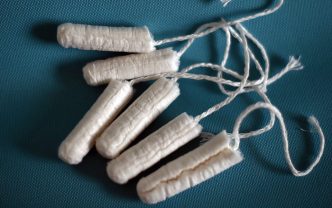Simplifying daily items, especially those your body touches, has a quiet magic. This is your inside look at what happens when you convert to organic tampons. Organic choices are created from certified organic cotton without synthetic fibres, colours, or chlorine bleaching. The label change often affects comfort, skin sensation, and environmental impact. Many organic eaters notice this—told with period pros’ practical realism and lived-in depth.
Fewer Chemicals Touching Your Body
Organic tampons avoid chlorine-based bleaching and cotton cultivated with synthetic pesticides, reducing skin contact with chemicals. A reduced ingredient list and a product closer to its natural condition can seem cleaner and more reassuring with each modification.
Allergic Reactions Dialed Down
Concerned about conventional products’ fragrances, dyes, or mysterious ingredients? Organic tampons avoid them, which is good for individuals whose skin flares at the first indication of irritation. Not all products are hypoallergenic, but many consumers report less itching, redness, and reaction pain after switching.
Breathability You Can Feel
Organic cotton has a naturally airy quality, allowing more airflow than many synthetic blends. That breathability helps curb the damp, sealed-in feeling and the chafing that can come with it, making long days at work or workouts feel markedly more comfortable.
A Softer, Gentler Texture
There’s a tactile difference you may notice immediately: organic cotton often feels softer, less squeaky, and more pliable. That gentleness can make insertion smoother and removal less abrasive, especially during lighter-flow days when tampons can feel dry or grabby.
Eco-Friendly Farming and Production
Organic cotton isn’t just about the final fiber—it’s a farming philosophy that centers soil health, biodiversity, and reduced chemical runoff. Opting in supports a supply chain that leans into regenerative practices and better safeguards farmworkers and ecosystems, turning a routine purchase into a quiet vote for the planet.
Biodegradable by Design
Most organic tampons, being primarily cotton, are designed to break down more readily than options packed with synthetics or plastics. While disposal rules still apply (don’t flush, and local waste guidelines vary), the base materials themselves typically return to the earth faster under the right conditions, easing long-term landfill burdens.
No Added Fragrance or Dyes
If “fresh scent” reads more like “chemical cocktail” to your nose, organic tampons keep it simple. By avoiding perfumes and colorants, they skip common triggers for irritation and masking odors—resulting in a neutral, low-profile presence that stays out of your way.
Sensitive-Skin Friendly
Combine fewer additives, softer cotton, and better airflow, and you get a product that’s often kinder to reactive skin. It’s the small, cumulative stuff—less friction, less residue, fewer surprises—that helps calm flare-ups and keep your routine consistent from day one to day five.
Peace-of-Mind Factor
Minimalist ingredients, thoughtful production, and a lighter footprint can add up to a feeling that’s hard to quantify but easy to recognize. There’s confidence in knowing what you’re using is simple, deliberate, and designed with your body—and the environment—in mind.
What About Absorbency and Performance?
Organic tampons come in the same absorbency levels as conventional ones, and the performance is comparable when you match the product to your flow. As always, follow the recommended wear times and absorbency guidance to help lower the risk of tampon-related issues like discomfort or dryness.
Applicators and Packaging Details
Organic tampons aren’t monolithic: some feature plant-based or recyclable applicators, others use cardboard, and a few are applicator-free for minimal waste. Packaging can range from compostable wrappers to recyclable boxes, so the footprint you leave may vary brand to brand.
The Feel-Good Factor Beyond the Bathroom
One of the underrated perks is how this choice ripples into everyday life: fewer ingredient unknowns, quieter waste streams, and a pared-down routine that becomes second nature. It’s the rare switch that treats your body kindly and reinforces your values without demanding sacrifice.
Realistic Expectations, Health First
Organic doesn’t mean risk-free. Toxic Shock Syndrome (TSS) is associated with tampon use in general and can occur regardless of fiber type; responsible wear—changing regularly and avoiding higher absorbency than you need—remains essential. If you have a medical condition or recurring irritation, a chat with a healthcare provider is still your best move.
Cost and Availability
Organic tampons can be slightly pricier, but availability has grown across pharmacies, grocery stores, and online retailers. Whether you buy in bulk or mix them into a broader period toolkit, the cost difference is often manageable and may feel worth it for the comfort and clarity you gain.
A Subtler Scent Profile
Without fragrances, you won’t get the perfumed overlay that tries to mask period odor. Instead, there’s a neutral baseline—less noise, fewer chemicals, and a more authentic feel that many users prefer once they acclimate.
For the Minimalists Among Us
If you’re drawn to fewer steps and simpler inputs, organic tampons play well with streamlined routines. Knowing the core material is just cotton—grown and processed with restraint—can be a pleasingly straightforward chapter in an otherwise complex month.
The Planet-Friendly Edge, In Practice
No product is perfect, but organic cotton tampons push the industry toward better outcomes: more responsible farming, less synthetic waste, and more options that take lifecycle seriously. It’s not about purity—it’s about progress you can touch.
FAQ
Are organic tampons safer than regular tampons?
They reduce exposure to certain chemicals and additives, but all tampons carry similar usage risks; safe wear habits matter most.
Do organic tampons lower the risk of TSS?
No—TSS risk exists with any tampon; follow recommended wear times and absorbency guidelines.
Will organic tampons feel different from my usual brand?
Many people report softer texture and better breathability, which can translate to improved comfort.
Are organic tampons more eco-friendly?
Generally yes, due to organic cotton and reduced synthetics, though actual impact depends on the brand’s materials and packaging.
Can I compost organic tampons?
They’re typically biodegradable, but composting menstrual products isn’t advised in most home systems and may be restricted locally.












